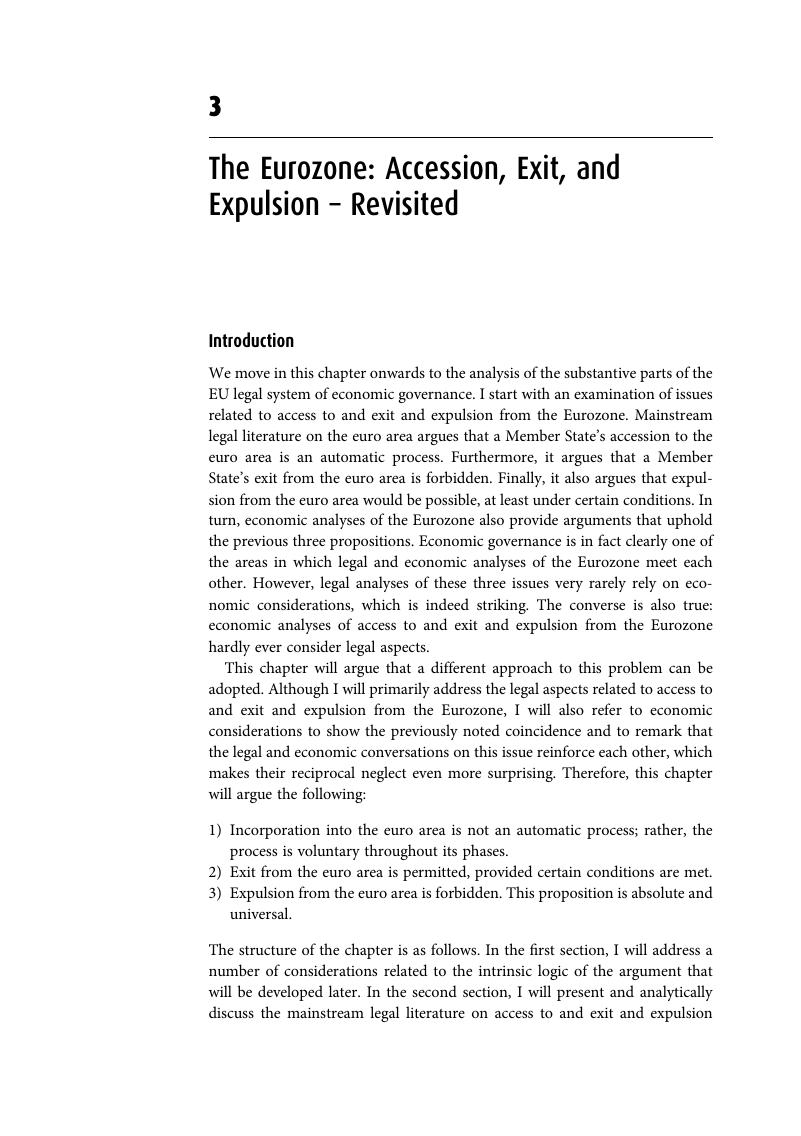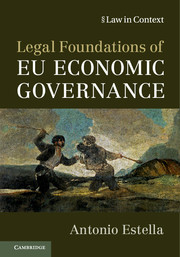Book contents
- Legal Foundations of EU Economic Governance
- The Law in Context Series
- Legal Foundations of EU Economic Governance
- Copyright page
- Dedication
- Epigraph
- Contents
- List of Figures
- List of Tables
- List of Boxes
- Preface and Acknowledgments
- 1 Analytical Dialectics, Rationality, and Trust
- 2 Law as Credibility: Basic Traits
- 3 The Eurozone: Accession, Exit, and Expulsion – Revisited
- 4 The ECB and European Monetary Policy
- 5 The European Framework of Financial Regulation and Supervision: Towards a Banking Union
- 6 The Stability and Growth Pact before the Crisis
- 7 The Stability and Growth Pact under the Crisis – and Beyond
- 8 European Union Bailouts (I): General Aspects
- 9 European Union Bailouts (II): Bailouts of Member States and MOUs
- 10 The EU Economic Strategy
- Index
- References
3 - The Eurozone: Accession, Exit, and Expulsion – Revisited
Published online by Cambridge University Press: 22 August 2018
- Legal Foundations of EU Economic Governance
- The Law in Context Series
- Legal Foundations of EU Economic Governance
- Copyright page
- Dedication
- Epigraph
- Contents
- List of Figures
- List of Tables
- List of Boxes
- Preface and Acknowledgments
- 1 Analytical Dialectics, Rationality, and Trust
- 2 Law as Credibility: Basic Traits
- 3 The Eurozone: Accession, Exit, and Expulsion – Revisited
- 4 The ECB and European Monetary Policy
- 5 The European Framework of Financial Regulation and Supervision: Towards a Banking Union
- 6 The Stability and Growth Pact before the Crisis
- 7 The Stability and Growth Pact under the Crisis – and Beyond
- 8 European Union Bailouts (I): General Aspects
- 9 European Union Bailouts (II): Bailouts of Member States and MOUs
- 10 The EU Economic Strategy
- Index
- References
Summary

- Type
- Chapter
- Information
- Legal Foundations of EU Economic Governance , pp. 36 - 67Publisher: Cambridge University PressPrint publication year: 2018



